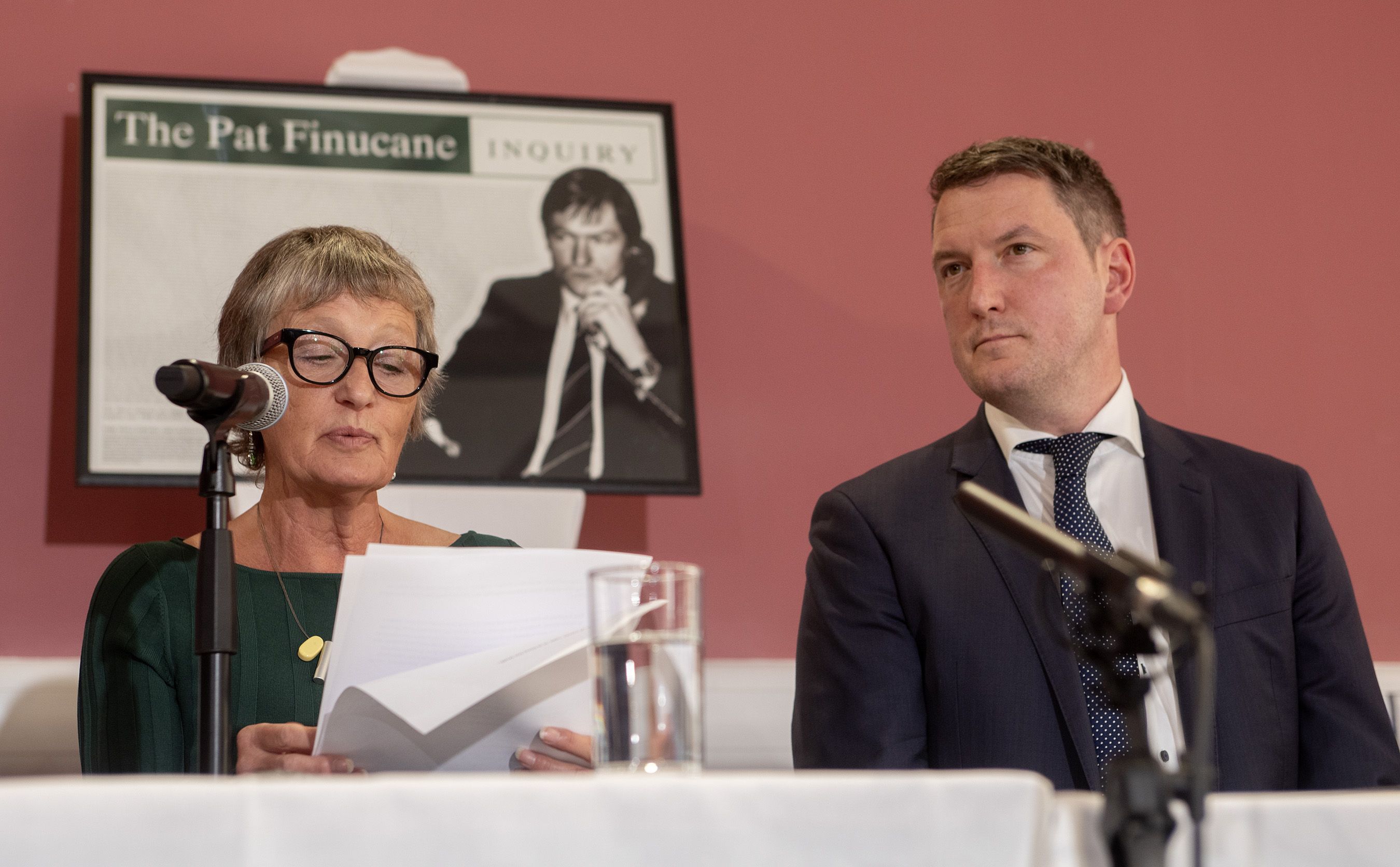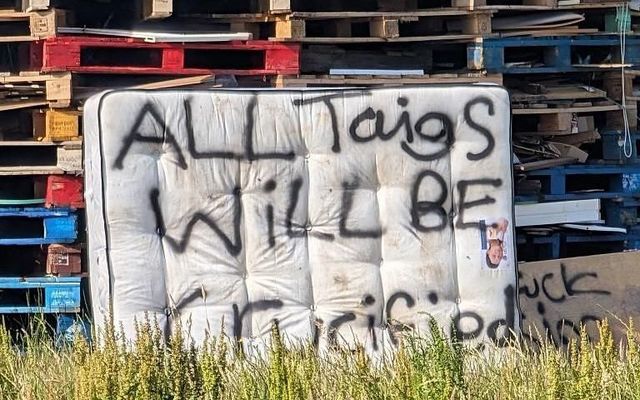‘WHAT about all the other victims?’ That’s the unionist consensus on the news that an independent public inquiry has been ordered into the murder of Pat Finucane.
Like all arguments that get the mob rushing for their torches and pitchforks, it has a certain simplistic allure. We live above a boneyard of unknown victims whose names never enter the public discourse; whose fates never merit an indignant/tearful mention in a newspaper column; whose stolen lives to all intents and purposes were never lived outside their circle of friends and family. And when they are mentioned – even as part of a charnel house filled with nameless corpses – the resulting pathetic gratitude and inchoate anger are tragically predictable.
But while an indignant unionist rep on the wireless might think the murder of his UDR uncle up a country lane by the IRA is as worthy as a public inquiry as the murder of Pat Finucane, it isn’t. And much as I would like to think the killing of my schoolgirl sister on a city street by the British state deserves a live-streamed, multi-million pound, state-ordered audit, it doesn’t.
Outside of those cases which have already been or are the subject of public inquiry, the overwhelming majority of conflict deaths are deserving only – and that cruel adjective is deliberately inserted here – of what the law requires for any sudden death. The fact that even the legal minimum has been routinely denied for decades in the case of killings by the British state is a discussion for another day.
So how many killings by the IRA might there be out there which have never been considered for public inquiry, but which might reasonably be said to demand inclusion in that conversation? The answer is I don’t know. But infinitely more interesting than the banal fact of my ignorance is the explanation of why I don’t know.
Political leaders have been reacting to today's announcement, with Sinn Fein and the Irish government describing it as a vindication of the Finucane family's campaign. Unionist parties, including the DUP, accused Labour of creating a hierarchy of victims. Here's Jayne McCormack. pic.twitter.com/1oDaY4T7Ht
— BBC Newsline (@bbcnewsline) September 11, 2024
The reason I don’t know is that the same unionists who are now furiously demanding public inquest parity of esteem have never told me. They’ve never told you. But more importantly, they’ve never even told their own voters. Because truth and justice to those unionist politicians now knocking each other out of the way to get to a microphone are not goals to be pursued in the way that the Finucane family and the entire nationalist and republican political and public body have. Truth and justice exist in the minds of unionist politicians as entirely negative concepts – as weapons deployed by the enemy. To them, truth and justice are to be fought against, not dreamed of and embraced.
Ask yourself this when you see a unionist elected rep churning out their single transferable Finucane response: When’s the last time you saw them on the streets with Protestant or unionist victims of the IRA on the walk that SDLP and Sinn Féin reps walk? When’s the last time you saw them standing outside the courts side-by-side with families in the wake of another legal victory/defeat? When did you ever see this MP with a placard or that MLA behind a banner? You have your answer without having to bother Professor Google.
And that’s why I don’t know if any IRA atrocities deserve public inquiry consideration: Quite simply, those families, those communities, who may feel that the injustice they suffered at the hands of republicans cries out for a public inquiry don’t step forward. And they grieve silently and bitterly in the shadows because they look at and listen to their political representatives and they learn that legal activism is to be viewed with suspicion and hostility.
Quite simply, in the culture of parades, bands and bonfires, there is no subculture of activism. I can’t count the number of demos I’ve attended as man and boy, the number of protest marches I’ve been on; I can’t even begin to remember the faces on the placards I’ve held up or what the messages were on the banners I’ve walked behind. And I’m lazy. I wouldn’t be considered particularly active, or even averagely active, in the community I live in and the communities I have lived in.
Why don’t victims of the IRA get to stand outside the court surrounded by unionist politicians? Why aren’t there white-line pickets with pictures of IRA victims on the Shankill Road? Why don’t angry Protestant/unionist communities even just occasionally march to the city centre carrying banners with images of IRA victims instead of images of 19th century Orangemen?
They don’t do those things because every word, every action and – more importantly – every non-action of their leaders tells them that this truth and justice business is for that lot; that the courts are for the disaffected and the seditious. And so Protestant victims of the IRA have stayed off the streets because their leaders never led them there, and over the years their anger and frustration have deepened with every new story about a republican state victim winning a case, with every latest picture of vindicated Catholics on the courtroom steps.
And it doesn’t occur to them that their problem is not other victims – their problem is the people they vote for who only ever show interest in truth and justice when it seems like others might be getting some; the people they voted for who never even as much as suggested to them that truth and justice are worth fighting for, never mind joined them on the battlefield.






